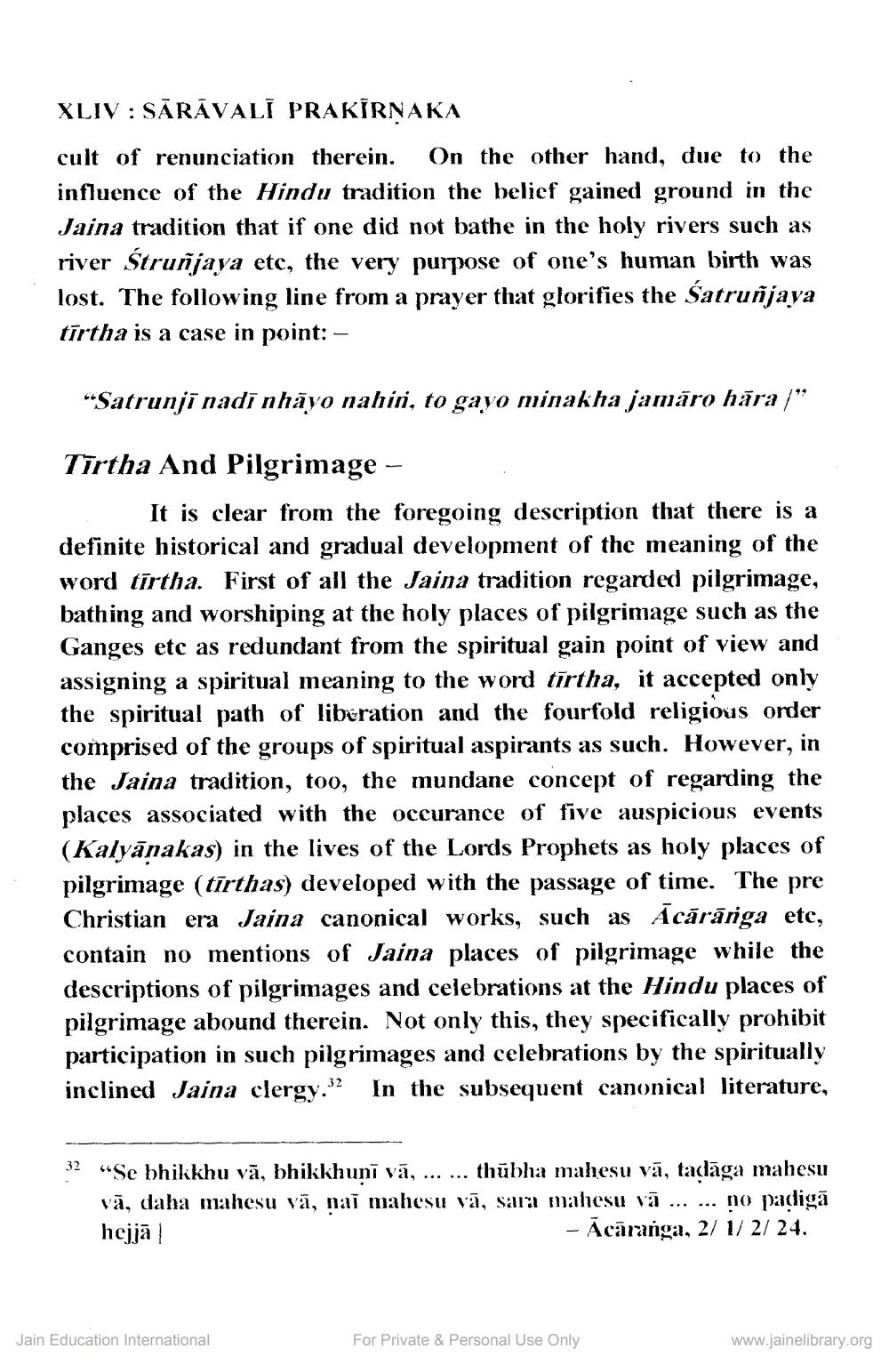________________
XLIV: SĀRĀVALĪ PRAKĪRNAKA cult of renunciation therein. On the other hand, due to the influence of the Hindu tradition the belief gained ground in the Jaina tradition that if one did not bathe in the holy rivers such as river Strunjaya etc, the very purpose of one's human birth was lost. The following line from a prayer that glorifies the Satruñjaya tirtha is a case in point: -
"Satrunji nadi nhāyo nahin, to gayo minakha jamáro hāra/"
Tīrtha And Pilgrimage –
It is clear from the foregoing description that there is a definite historical and gradual development of the meaning of the word tirtha. First of all the Jaina tradition regarded pilgrimage, bathing and worshiping at the holy places of pilgrimage such as the Ganges etc as redundant from the spiritual gain point of view and assigning a spiritual meaning to the word tirtha, it accepted only the spiritual path of liberation and the fourfold religious order comprised of the groups of spiritual aspirants as such. However, in the Jaina tradition, too, the mundane concept of regarding the places associated with the occurance of five auspicious events (Kalyānakas) in the lives of the Lords Prophets as holy places of pilgrimage (tīrthas) developed with the passage of time. The pre Christian era Jaina canonical works, such as Ācārārga ete, contain no mentions of Jaina places of pilgrimage while the descriptions of pilgrimages and celebrations at the Hindu places of pilgrimage abound therein. Not only this, they specifically prohibit participation in such pilgrimages and celebrations by the spiritually inclined Jaina clergy.52 In the subsequent canonical literature,
32 “Se bhikkhu vā, bhikkhuni vă, ... ... thubha mahesu vā, tadāga mahesu
vā, daha mahesu vā, nai mahesu vā, sara mahesu vā ... ... no padigā hejjā /
- Acaranga, 2/ 1/ 2/ 24.
Jain Education International
For Private & Personal Use Only
www.jainelibrary.org




